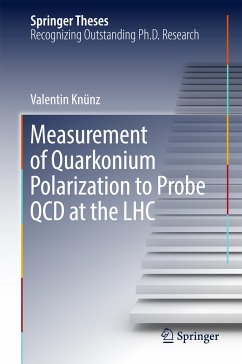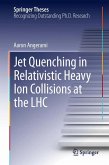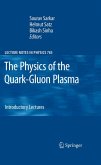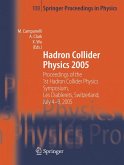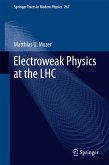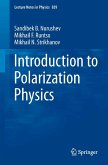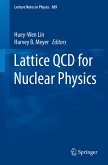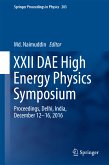This thesis discusses in detail the measurement of the polarizations of all S-wave vector quarkonium states in LHC proton-proton collisions with the CMS detector. Heavy quarkonium states constitute an ideal laboratory to study non-perturbative effects of quantum chromodynamics and to understand how quarks bind into hadrons.
The experimental results are interpreted through an original phenomenological approach, which leads to a coherent picture of quarkonium production cross sections and polarizations within a simple model, dominated by one single color-octet production mechanism. These findings provide new insights into the dynamics of heavy quarkonium production at the LHC, an important step towards a satisfactory understanding of hadron formation within the standard model of particle physics.
Dieser Download kann aus rechtlichen Gründen nur mit Rechnungsadresse in A, B, BG, CY, CZ, D, DK, EW, E, FIN, F, GR, HR, H, IRL, I, LT, L, LR, M, NL, PL, P, R, S, SLO, SK ausgeliefert werden.
Es gelten unsere Allgemeinen Geschäftsbedingungen: www.buecher.de/agb
Impressum
www.buecher.de ist ein Internetauftritt der buecher.de internetstores GmbH
Geschäftsführung: Monica Sawhney | Roland Kölbl | Günter Hilger
Sitz der Gesellschaft: Batheyer Straße 115 - 117, 58099 Hagen
Postanschrift: Bürgermeister-Wegele-Str. 12, 86167 Augsburg
Amtsgericht Hagen HRB 13257
Steuernummer: 321/5800/1497
USt-IdNr: DE450055826
Bitte wählen Sie Ihr Anliegen aus.
Rechnungen
Retourenschein anfordern
Bestellstatus
Storno

